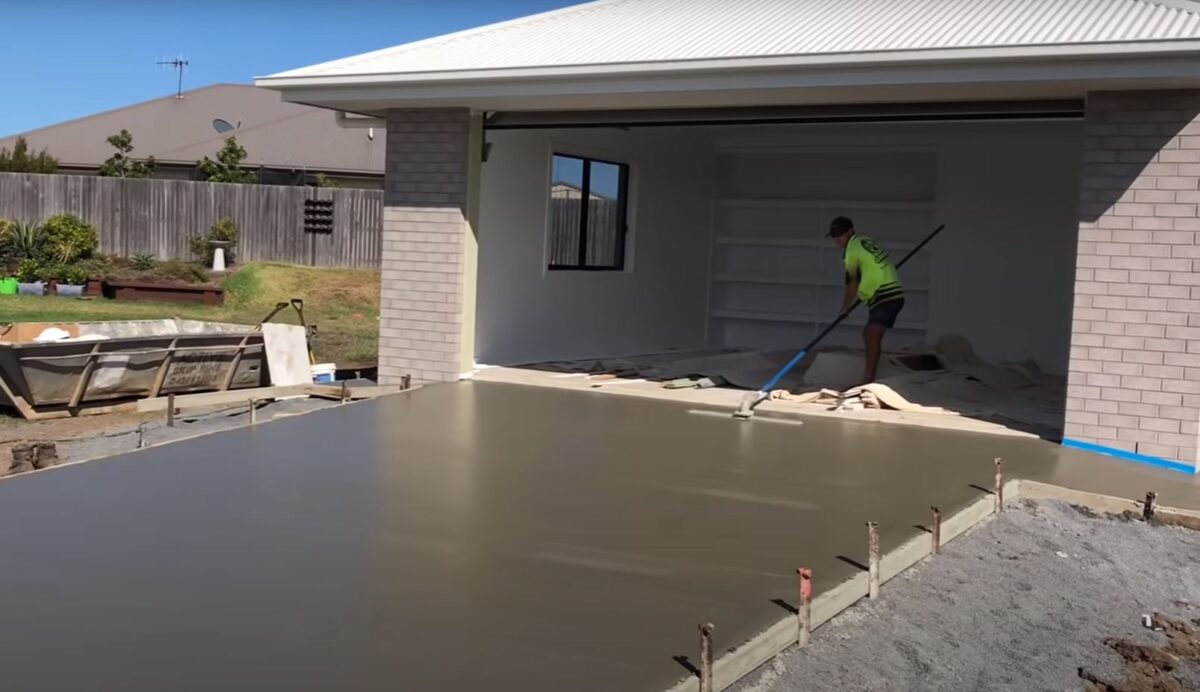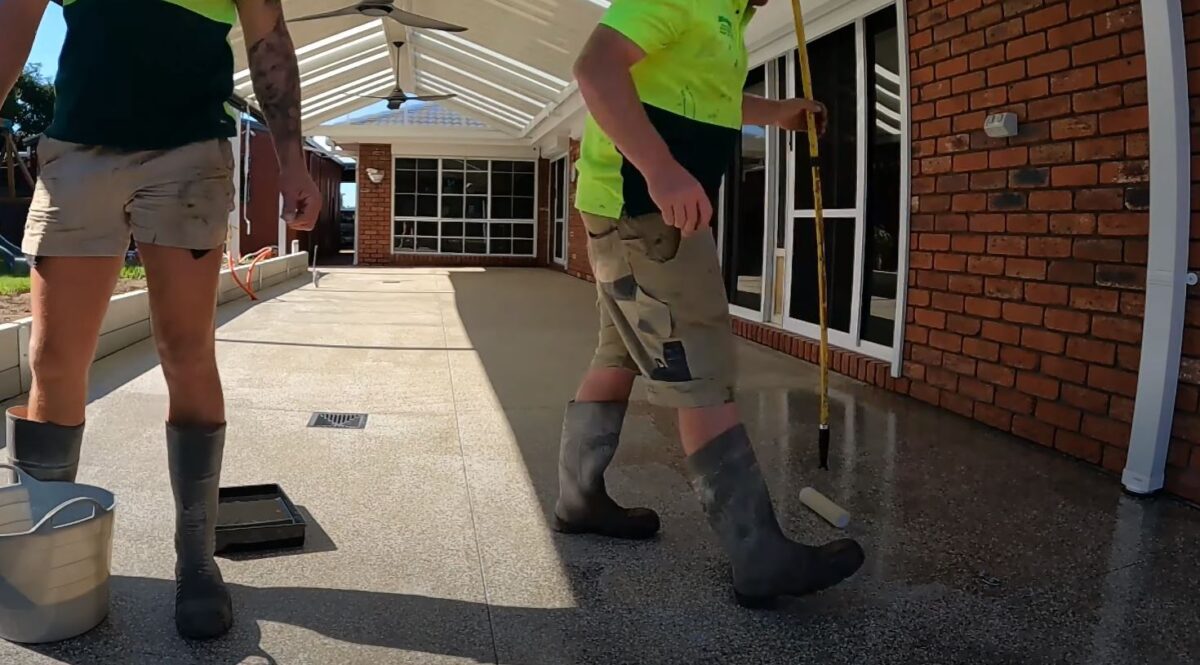Driveway’s Lifespan: When is it Time to Act?
Every concrete driveway faces wear and tear over time. Depending on the quality of the original installation and the amount of traffic it handles, a typical concrete driveway in Auckland can last between 20 to 30 years. Visible cracks, potholes, or significant discolouration are indications that your driveway requires attention.
Environmental Considerations: More Than Just Aesthetics
Concrete’s environmental impact often gets overlooked. Whether you choose to repair, resurface, or replace, it’s essential to consider the environmental ramifications. Repairs usually have the least impact, using minimal materials. Resurfacing, while requiring more material, is less intensive than a full replacement. Complete replacements are resource-intensive but sometimes are the only viable long-term solution.
The Local Auckland Angle: Does Your Suburb Matter?
Certain areas in Auckland, like Remuera or Mount Eden, might have different soil types or regulations. These can influence the longevity of your driveway and the choices you make regarding repairs and replacements.
Weighing the Options: Repair, Resurface, or Replace?
Best for minor damages. Repairs involve filling cracks or holes. Costs for typical repairs in areas like Ponsonby might range between $160 to $780, depending on the extent.
For driveways that are structurally sound but have surface damage. Resurfacing rejuvenates the driveway appearance, giving it a fresh look. In suburbs like Manukau, costs can be between $3,100 to $6,210, depending on the finish and area size.
When significant structural issues are present, replacement is the only solution. The expense for this option in areas such as Howick may range between $7,760 to $23,260, based on size and finishes.
Finishes and Their Costs
The aesthetics and functionality of the driveway can be enhanced by various finishes:
Adds texture and pattern to your driveway. Approximately $120 to $200 per square metre.
Reveals the aggregate beneath for a unique look. Around $160 to $240 per square metre.
Enhance the look with varied colours. Typically, $80 to $160 per square metre.
Council Considerations: Always Check the Fine Print
Auckland Council requires certain permits for extensive driveway works, especially replacements. Bylaws might vary, especially in heritage areas like Kingsland or areas with significant tree cover like Titirangi. Additionally, certain regional councils might have specific codes that mandate the type of materials or finishes used. Consent costs can reach the low thousands.
Table: Simplifying Your Driveway Options in Auckland
| Criteria | Repair | Resurface | Replace |
| Cost | $160 – $780 | $3,100 – $6,210 | $7,760 – $23,260 |
| Duration | Few hours – 1 day | 2 – 4 days | 1 – 2 weeks |
| Impact on Environment | Low | Moderate | High |
| Aesthetic Variability | Low | High | High |
Your driveway is more than just a functional space; it’s the first impression of your home. Whether you’re in Albany or Mt Eden, understanding your options ensures that you can make an informed decision that aligns with your budget, aesthetic preferences, and environmental considerations. Always consult with a professional before making any significant changes to your property.
Frequently Asked Questions on Driveway Repair, Resurfacing, and Replacement in Auckland
How long should a concrete driveway last in Auckland?
Most concrete driveways, with proper installation and maintenance, should last between 20 to 30 years.
What are the signs that my driveway needs attention?
Visible cracks, potholes, discolouration, and structural weaknesses are all indications that your driveway may need repair, resurfacing, or replacement.
Is repairing always the cheapest option?
While repairs are generally less expensive than resurfacing or replacement, they might not always be the most cost-effective solution in the long run if the damage is extensive or recurring.
How do environmental considerations impact my driveway decisions?
Choosing to repair or resurface can have a lesser environmental footprint than a full replacement because of reduced material usage and waste generation.
Does my Auckland suburb impact my driveway choices?
Certain suburbs may have varying soil types, and specific regulations that can influence the longevity and type of work allowed on your driveway.
Can I resurface my driveway myself?
While there are DIY kits available, professional resurfacing ensures a smoother finish, proper bonding, and longevity.
Why might I need to replace my driveway entirely?
Significant structural issues, extensive damage, or the desire for a complete aesthetic overhaul can necessitate a full driveway replacement.
What is stamped concrete?
Stamped concrete involves pressing patterns or textures into the surface, providing a decorative finish that can mimic brick, stone, or other materials.
How much does it cost to get a coloured concrete finish in Auckland?
A coloured concrete finish can range from $80 to $160 per square metre, depending on the complexity and type of pigment used.
What permits do I need from the Auckland Council for driveway work?
For extensive driveway modifications, especially replacements, permits may be required. It’s essential to consult with Auckland Council or a local expert to ensure compliance.
What’s the difference between exposed aggregate and plain concrete finishes?
Exposed aggregate reveals the stones or aggregate beneath the concrete surface for a textured and unique look, while plain concrete provides a smooth, even finish.
How does the type of finish affect the longevity of my driveway?
Certain finishes, like stamped concrete or exposed aggregate, can enhance the driveway’s durability by providing additional surface protection and reducing wear.
How long does it take to resurface a driveway?
On average, depending on the size and finish chosen, it can take between 2 to 4 days to resurface a driveway.
Why are driveway services priced differently across Auckland suburbs?
Variations in pricing can result from factors like local regulations, soil type, accessibility, and the popularity or demand for certain finishes in particular suburbs.

